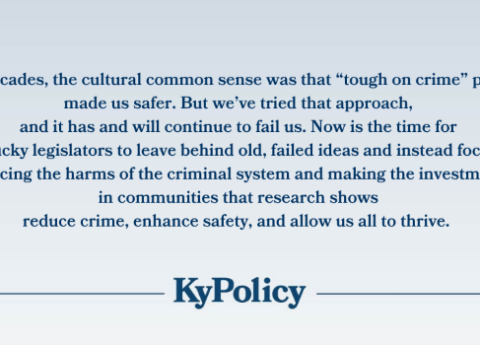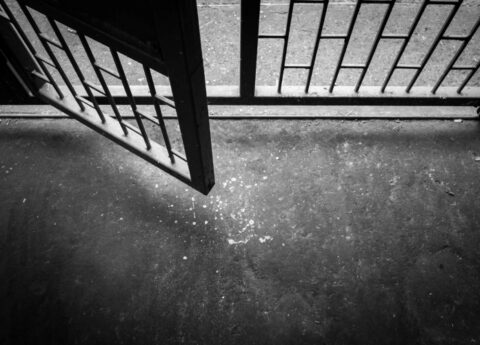All Kentuckians deserve to feel safe in their communities, but sending even more people to jail and prison, and for longer, will not make us safer. And yet, that’s the approach taken in House Bill 5, an expansive collection of tried-and-failed policies that respond to a wide range of societal issues with one antiquated solution: more and more incarceration.
Rather than improving public safety, it would instead grow poverty and hardship, further increase the risk of overdose deaths, and massively swell spending on prisons and jails that could be better used for investments that actually work to prevent crime.
HB 5 passed out of the House Judiciary Committee Thursday, but that contentious meeting should cause lawmakers to pause. The vote came with bipartisan opposition from the committee and a chorus of opposing testimony from organizations representing people who are homeless and those dealing with recovery, experts on the criminal legal system, proponents of fiscal conservatism and leaders of communities most affected by the issues HB 5 claims to address.
Research tells us that longer sentences do not decrease violent crime or deter people from committing it. The general public is almost entirely unaware of sentencing details, and there’s a diminishing shock value of long sentences becoming longer. People tend to age out of criminal behavior, while longer and longer sentences create elder wards in prisons for people who can hardly be a threat to society.
Research also tells us that extreme penalties related to fentanyl fail to reduce overdose deaths, and instead increase the risk of fatal overdose and make people more afraid to call for help. The General Assembly already enhanced penalties for fentanyl several times in the past decade and then saw overdose deaths and incarceration continue to rise.
And research tells us that affordable housing is the solution to homelessness, not criminalizing “street camping” or making it easier to legally use physical force against the unhoused.
Not only does HB 5 go against mountains of expert advice based on decades of experience, it is also not an appropriate response to what’s happening in Kentucky now. Reducing violence is an issue we all care deeply about, but violent crime is coming down in Kentucky and across the country after a temporary rise spurred by the pandemic.
HB 5 includes 37 provisions that will increase costs to local and state governments, money that could instead be spent on crime-preventing investments in education, housing and community-based services. Kentucky legislators could also expand harm reduction and community mental health services, reform the Good Samaritan law to help prevent more deaths from overdose by better protecting those who call for help, and streamline expungement to support successful reentry after incarceration.
But this bill does not include the proven strategies to address crime, homelessness and fatal drug overdose. Instead, it turns back the clock on criminal justice policy with an antiquated “three strikes” law. It seeks to restrict charitable bail funds, ensuring poor people will spend more time behind bars pretrial than people with money. And it grants legal protection to a business owner who uses force against someone they believe, accurately or not, to be stealing from them.
Much of HB 5 will disproportionately harm Black Kentuckians, who are already over-represented in the state’s prisons and jails. While Black Kentuckians make up just 7.7% of Kentucky’s population, they are 21% of the commonwealth’s prison population. Fatal overdoses are also increasing among Black Kentuckians at the same time there was a decline for the state as a whole.
The reality is that Kentucky already has harsh laws related to drugs and violent offenses. Making them harsher will only further entrench Kentuckians in poverty, crowd out funds for evidence-backed approaches, and separate more families, and for longer, in a state where one in 10 children has already experienced the incarceration of a parent.
If Kentucky were a country, we’d be the seventh most incarcerated place in the world. If more, and longer incarceration was the solution to our problems, we would have solved them already.
This column ran in the Kentucky Lantern and the Lexington Herald-Leader on January 23.




